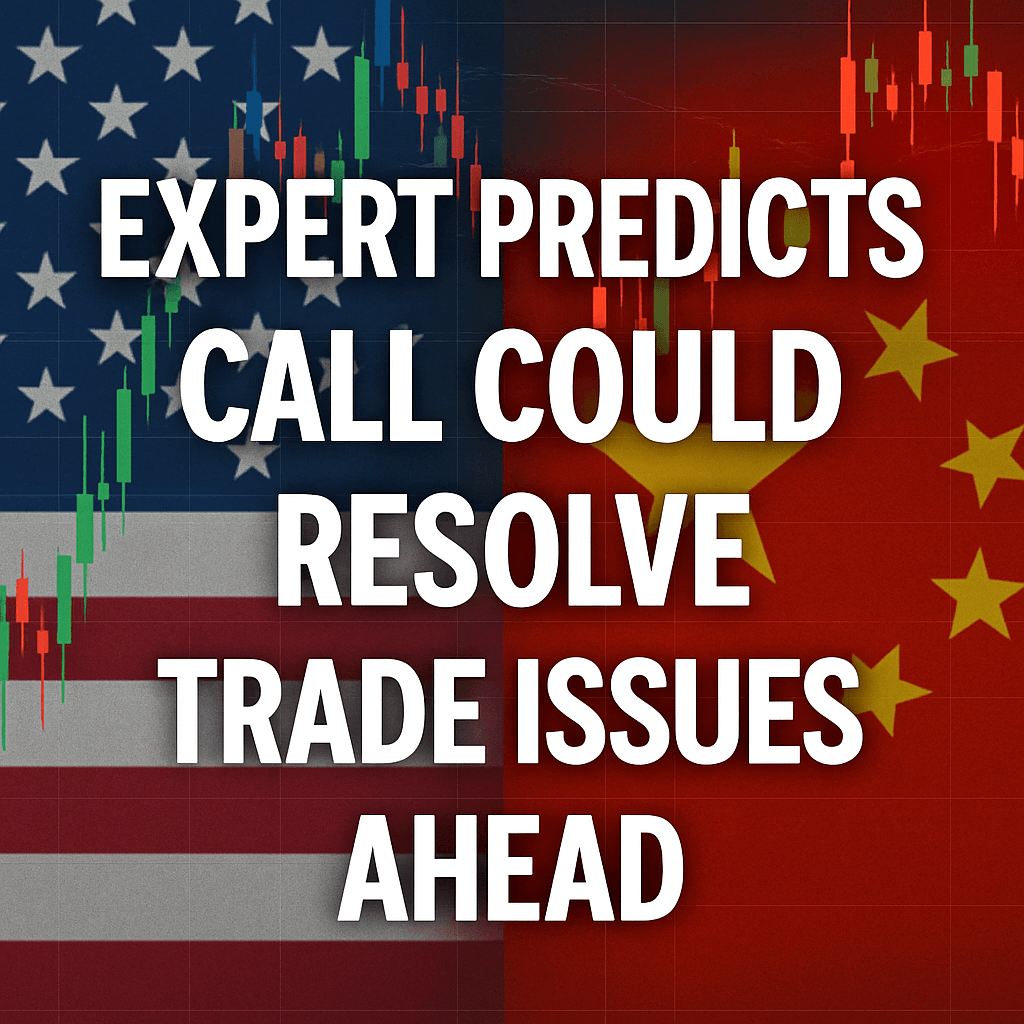Expert Predicts Call Could Resolve Trade Issues Ahead

A significant bottleneck in the ongoing trade negotiations between the United States and China may soon be alleviated, pending a future conversation between Presidents Donald Trump and Xi Jinping. US officials indicated on Sunday that this important discussion could unfold in the near term, possibly as early as this week.
Backdrop of Trade Tensions
Recent tensions escalated when President Trump publicly accused China of not adhering to a previous agreement reached in Geneva, which aimed to temporarily reduce the extraordinarily high tariffs imposed by both nations. The truce was intended to last for a 90-day period, designed to give both parties time to negotiate tariffs that had reached unprecedented levels. Trump had previously levied substantial tariffs against China’s imports, citing unfair trade practices and intellectual property theft as key issues.
Specific Concerns Impacting Negotiations
According to reports from The Wall Street Journal, China has been accused of delaying export license approvals for critical rare earth materials and other essential components necessary for manufacturing cars and chips, leading to heightened frustration among US officials. These rare earth elements hold strategic importance in various high-tech applications, including electric vehicles and advanced electronics.
Bessent’s Optimism Amidst Strain
US Treasury Secretary Scott Bessent expressed cautious optimism during an appearance on CBS’s “Face the Nation,” suggesting that the issues currently at hand could soon be resolved. “I’m confident that when President Trump and Party Chairman Xi have a call that this will be ironed out,” Bessent stated. He acknowledged, however, that while trying to bridge gaps, China appeared to be withholding certain critical products initially promised under the terms of their agreement.
China’s Stance on Rare Earth Exports
When directly queried about whether rare earths were among the products being withheld, Bessent confirmed, “Yes.” He suggested that the situation might be a result of administrative glitches within the Chinese system but did not rule out the possibility of intentional delays. Affected materials include neodymium used in manufacturing powerful magnets for motors, vital to the growing electric vehicle market.
Impending Call and Market Reactions
When discussing the timing of the anticipated Trump-Xi call, Bessent projected a sense of urgency, stating: “I believe we will see something very soon.” Kevin Hassett, director of the White House’s National Economic Council, echoed this sentiment, asserting that the conversation could potentially take place within the week, though there was no definitive schedule confirmed at that point.
Impact of Tariffs and Future Policy Decisions
The imposition of tariffs has been a cornerstone of Trump’s economic strategy since he took office. The previous month had seen both nations momentarily de-escalate their trade hostilities, with the US agreeing to reduce additional tariffs on select Chinese imports—dropping from 145% to 30%—while China reciprocated with tariff reductions from 125% to 10%. However, persistent accusations of China engaging in unfair trade practices have underscored a continuous cycle of tension in bilateral relations.
Commerce Secretary Howard Lutnick highlighted what he characterized as China’s slow approach to fulfilling its commitments, stating: “We are taking certain actions to show them what it feels like on the other side of that equation.” This indicates that while negotiations are ongoing, there remains significant tactical maneuvering from both sides.
The Broader Geopolitical Context
Furthermore, Trump’s recent announcement of doubling sector-specific tariffs on steel and aluminum to 50% starting June 4 has elicited strong responses from the European Union, steadfast in its commitment to retaliate against perceived unfair trade practices. Hassett pointed out the critical implications of low-cost steel imports, arguing their detrimental effects on domestic US industry and thus on national preparedness.
The Defense Industry’s Concerns
Hassett stated, “The bottom line is that we’ve got to be ready in case things don’t happen the way we want, because if we have cannons but not cannonballs, then we can’t fight a war.” This statement underscores the administration’s position that a robust domestic steel industry is not only a matter of economic strength but also one of national security.
Conclusion and Forward-Looking Implications
The forthcoming call between Trump and Xi represents more than just a dialogue; it holds significant implications for global markets and the geopolitical landscape. As both countries prepare for further negotiations, the outcomes could redefine international trade frameworks and affect supply chains across the globe. Investors and market analysts will be closely watching for developments stemming from this anticipated conversation, as it could signal a pivotal turning point in US-China relations.